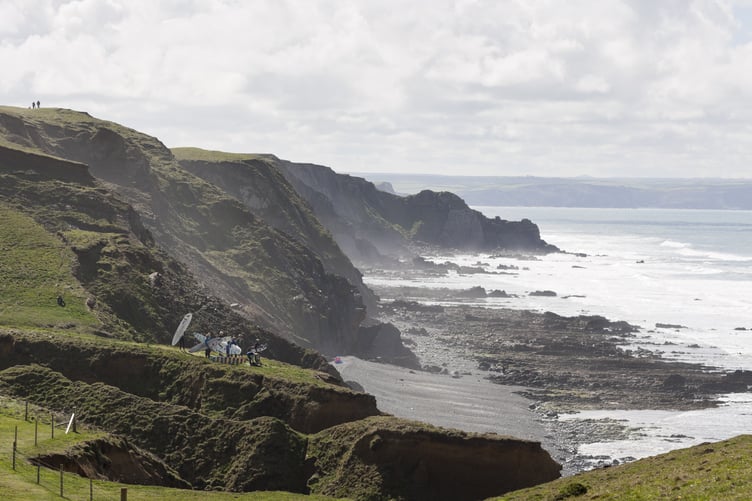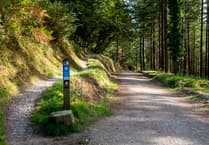FROM Bridgerton to Star Wars, some of the biggest TV and film productions on screen were filmed at National Trust properties across the country. Each month, nine shoots on average take place, for everything from period dramas to sci-fi blockbusters.
However, most recently, it is Cornwall-based production The Salt Path which takes its location from a National Trust site.
The film, directed by Marianne Elliot, tells the true story of Raynor (Gillian Anderson) and her husband Moth (Jason Isaacs) who embarked on an epic 630-mile walk along the South West Coast Path from Somerset to Dorset after learning that Moth was terminally ill and losing their home and livelihood.
Around 295 miles (one third) of the South West Coast Path is cared for by the National Trust, working in partnership with the South West Coast Path Association, and locations including Bossington, Minehead, Great and Little Hangman, Holdstone, Duckpool, Sandymouth, Morwenstow, Hawkers Hut and Middle Hope, all feature in the film which is released in UK cinemas on May 30.
The book on which the film is based on has sold more than a million copies and the big screen version featuring the two Hollywood actors is set to showcase the path and the surrounding area to a national and international audience.
The South West Coast Path is a very famous route with a natural and unforgiving rugged beauty, “It was a really challenging shoot because we were carrying equipment down paths, shooting in remote locations, so all those aspects presented practical challenges,” Elizabeth Karlsen, producer on The Salt Path explained.
Marianne Elliot, the film’s director added: “But the weather and the majestic natural South West landscape surrounding them played a very important role in their story. We always wanted to have nature as a character in its own right, but it’s quite difficult when that character never speaks, so we relied heavily on the visuals.”
As well as showing off beautiful locations, particularly here in the South West, filming at National Trust locations directly benefits the areas starring in productions. The income from location fees goes straight back into conservation work to care for historic houses and landscapes, so that visitors will be able to see them both on screen and in real life for years to come.
‘Screen tourism’ has been shown to be a big draw for visitors in recent years. According to insight conducted by Expedia in 2024, one in four people now say that TV shows and films "are even more influential on their travel plans than they were before", reporting that television shows now influence travel decisions more than Instagram, TikTok and podcasts.
There is no doubt that with this South Western production on its way to the big screen, many audiences will be keen to see the path for themselves. Those wishing to take part in their own coastal walking holiday are encouraged to visit either a recognised National Trust campsite or bothy, many of which are dotted along the coast right here in the South West.





Comments
This article has no comments yet. Be the first to leave a comment.